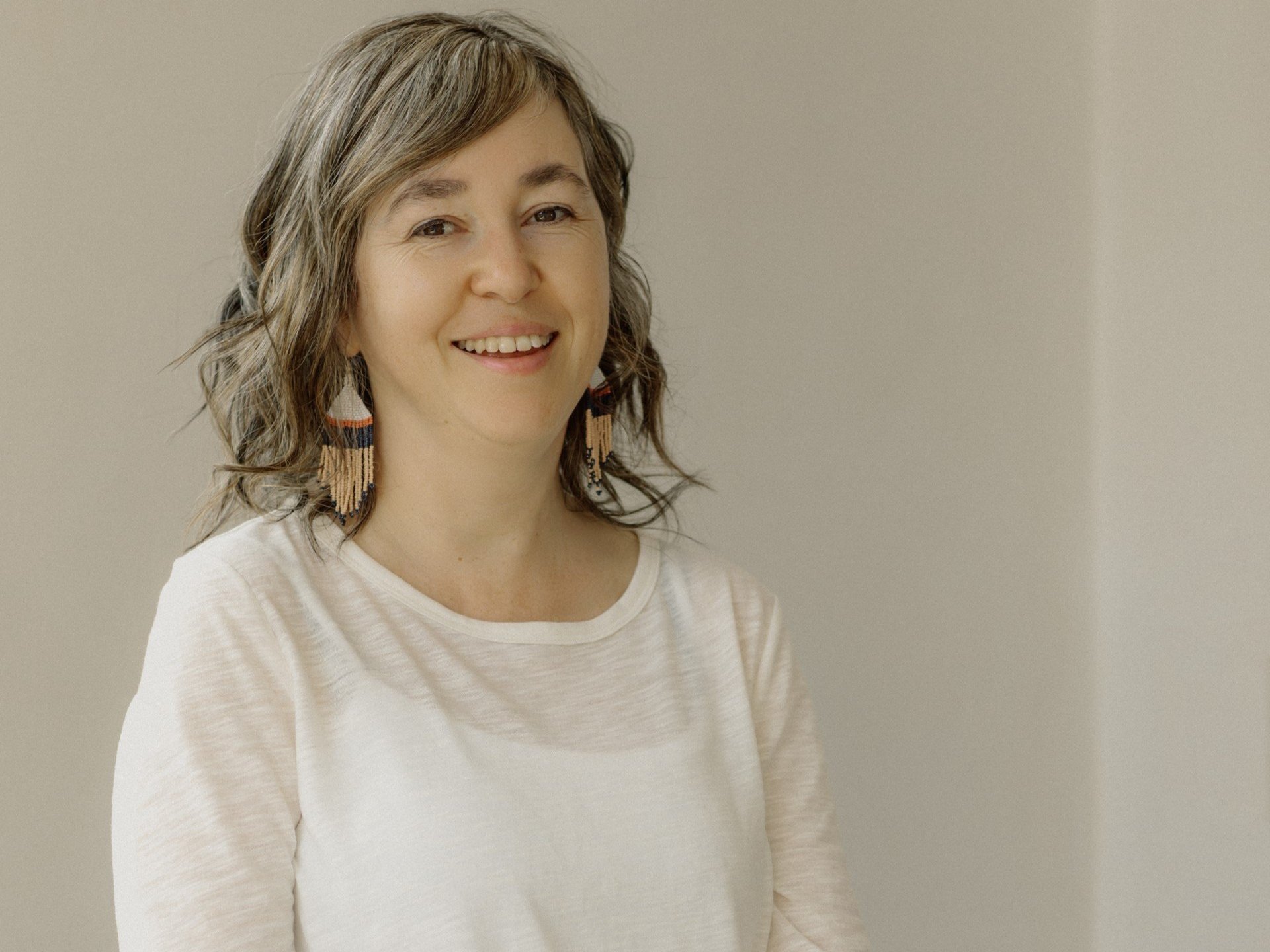Tatiana Santini
Tatiana is a Psychotherapist, Clinical Counselor, Trauma Therapist, and a Ketamine Assisted Psychotherapist. She holds a Bachelor degree in Health Science, and Master’s degree in Adlerian Psychotherapy and Counseling. In addition, Tatiana has a Postgraduate Certificates in Psychedelic Assisted Therapies and Research, MDMA Assisted Therapy, Ketamine Assisted Psychotherapy, and she is a Somatic Experiencing Practitioner.
Laura Montgomery
Counsellor
Laura is a Masters Level Clinical Counsellor, and Registered Social Worker, who brings a passionate belief in each person’s innate wisdom to heal, navigate, and grow from their life experiences. She brings her humanity and lived experience with her own pain journey, as well as her extensive post-graduate training, counselling skills and experience to her work with her clients.
What is Counselling?
Clinical Counselling is an evidence-based therapy used to treat a variety of conditions including chronic pain, anxiety, depression, trauma and more. In British Columbia, counselling is provided by Register Clinical Counsellors (RCC). These individuals are specifically trained to help people who are experiencing challenges with difficult emotions, thoughts, situations, or circumstances.
The counsellor’s role is to help facilitate insight, help clients develop healthy coping strategies, recognize or change patterns, and support them in exploring challenging emotions that are affecting their current function. Counsellors use evidence-based approaches while facilitating safe, confidential, and nonjudgmental environment, in which the client can express their feelings, thoughts, and concerns.
For chronic pain patients, research has shown that integrating mental health services into an interdisciplinary care approach has optimal results. At CHANGEpain clinic this is our intention, to treat the whole person with a biopsychosocial integrated approach to recovery. By engaging in mental health services at our clinic, we can integrate interventional pain therapy, education, mental health, and rehabilitation together transforming both mind and body.
How many sessions are typically needed:
Many individuals only need a few sessions, while others may benefit from longer term care. Typically, 12-20 sessions can be sufficient for most, others may need less or more care. This is dependent on client’s history, presenting issues, goals, and preference.
What to expect at your initial and follow-up sessions:
During the initial session, the client will be asked to inform the counsellor about their current struggles, relevant mental health history, and what they would like to address first. Together the counsellor and client co-create a plan while prioritizing and identifying achievable and attainable goals.
How much do sessions cost? What if I have coverage:
Counselling sessions:
Initial Session: 90 minutes $250
Follow up Session: Your choice of 60 minutes $175 or 90 Minutes $250
Ketamine Counselling: 60 minutes $250 (Please note these appointment types are specific to Ketamine Assisted Psychotherapy Program, those interested in this service should start with booking a “regular initial counselling session”)
We offer direct billing for counselling to following third party payers-
Green Shield Canada
Empire Life
Pacific Blue Cross
Medavie Blue Cross/Blue Cross
ICBC (Not at this time; but you may submit to ICBC for potential reimbursement)
How to book:
Online: www.changepain.ca/rehab
Phone: 604-566-9101 ext 2
Email: rehab@changepain.ca
How is Counselling different from Psychotherapy?
Read here: Counselling-and-psychotherapy
What are various techniques available/used in Counselling Sessions
Techniques and therapeutic modalities that can be used in specialized counselling for chronic pain may include pain psychoeducation, relaxation techniques, developing coping strategies, setting realistic goals, improving sleep hygiene, managing medication use, engaging in pleasant and meaningful activities despite the presence of pain, or developing solid emotional regulation. Other techniques may delve deeper into the root causes of mental health struggles such as trauma or PTSD and may include trauma processing.
Various counselling techniques will focus on mood, like depressed mood and anxiety, and other modalities will help address underlying trauma.
Somatic Experiencing (SE) is a trauma therapy that focuses on body’s natural ability to heal from trauma and traumatic stress related symptoms. The main idea behind SE is that when body’s natural response to stress was interrupted and not fully completed, it can lead to physical and emotional lingering effects. In SE therapists help client tune into their body’s sensations and feelings, allowing the trauma and the stored stress energy to be released from the body for the body to restore sense of balance and safety. (Read More)
Ketamine Assisted Therapy (KAT) and Ketamine Counselling (KC) is a unique treatment approach using sub-anesthetic (low doses) of ketamine together with psychotherapy or counselling. Ketamine is thought to work on certain brain receptors and neurotransmitters that affect mood and emotional regulation, hence allowing for processing emotions, while experiencing a non-ordinary state of consciousness. Therapeutic use of ketamine with therapy has shown promise treating depression, PTSD, certain pain conditions, as well as some addictions. (Read More)
Dialectical Behaviour Therapy (DBT) is a therapeutic approach which helps individuals develop mindfulness skills, improves flexible thinking, increases distress tolerance, improves emotional regulation, and interpersonal effectiveness. (Read More)
Cognitive Behaviour Therapy (CBT) can help with challenging negative thoughts, while using Behavioral Activation (BA) to engage in activities to counteract low mood, or low motivation, and to overcome avoidance or withdrawal behaviours. (Read More)
Any one of these modalities or a combination of them can be used during therapy sessions, depending on client’s unique presentation, history, and need.



